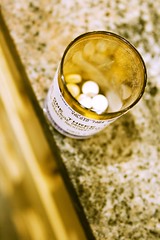- in Health & Beauty by Author
- |
- 1 comments
What is Homeopathy?
What is homeopathy? The definition of homeopathy, as explained by the National Center for Homeopathy, is a process in which a “system of medicine is based on the Law of Similars.”
What does this mean? Homeopathy as a system of medicine was established by Samuel Hahnemann and is explained in this way. “From the Latin Similia Similibus Curentur, it means ‘Let likes cure likes.’ Homeopathic practitioners claim that the same ingredient that, in large doses can cause a particular set of symptoms, can also help the body cure them when given in a tiny dose.
Naysayers claim that homeopathy doesn’t work and that it takes advantage of the placebo affect. There isn’t enough scientific data (meaning double blind studies, where neither the recipient nor the person giving the medicine knows which is the real medicine and which is the placebo) to prove homeopathy, but it has been utilized for over two centuries and many people swear by it. It certainly can’t hurt, since the dosages are so tiny. Homeopathy has even been used on animals and babies, who aren’t easily affected by the placebo affect.
[ad#ad-2]
Here is an example of “like curing like”. Rhus Tox, short for rhus toxicodendron (poison ivy) can obviously cause some unpleasant symptoms. The homepathic rhus tox is the remedy for poison ivy and is taken in tiny doses internally to help the body throw off the symptoms of allergy (the unbearable itching of poison ivy exposure). Coffea cruda is the remedy for, you guessed it, sleeplessness due to excess caffeine.
If you take a few moments to peruse the homeopathic remedies available in health food stores and online, you will notice that there are homeopathic remedies for insect bites, colds, flus, bruises, bleeding, infection, toothaches, vision problems, and irritability which can save you a small fortune on traditional medications.
There are a couple of key things to remember when using homeopathic remedies.One, that a very careful observation of symptoms, including the emotions the patient is feeling (for instance, a child with a cold who wants to be alone or is grumpy needs a different remedy from a kid who won’t leave your lap). Also, in contrast to traditional medicines, you stop taking the remedy when you begin to feel better. You may also feel worse first, called a homeopathic proving.
For more information on homeopathy and its remedies, you can check the National Center for Homeopathy or talk to a homeopathy practitioner. Recommended books on Homeopathy and sources for homepathic remedies:
* The Complete Homeopathy Handbook: Safe and Effective Ways to Treat Fevers, Coughs, Colds and Sore Throats, Childhood Ailments, Food Poisoning, Flu, and a Wide Range of Everyday Complaints
* Homeopathic Medicine for Children and Infants
If you liked this post, submit your email address below to get new posts by email:


![Reblog this post [with Zemanta]](https://img.zemanta.com/reblog_e.png?x-id=be85aba5-059c-4683-872a-b5b71eb196ef)